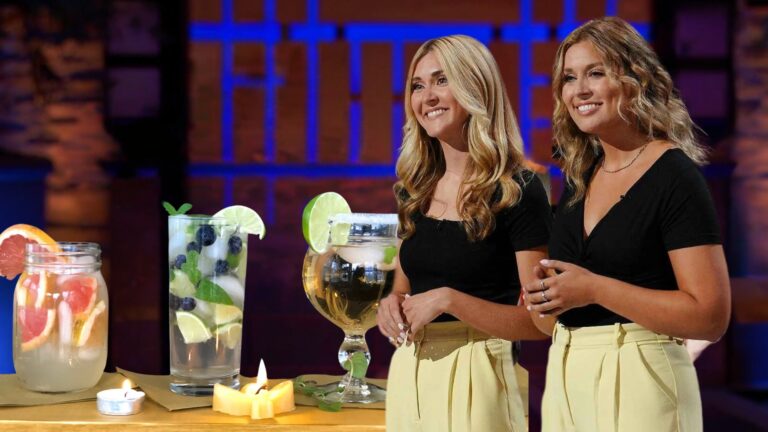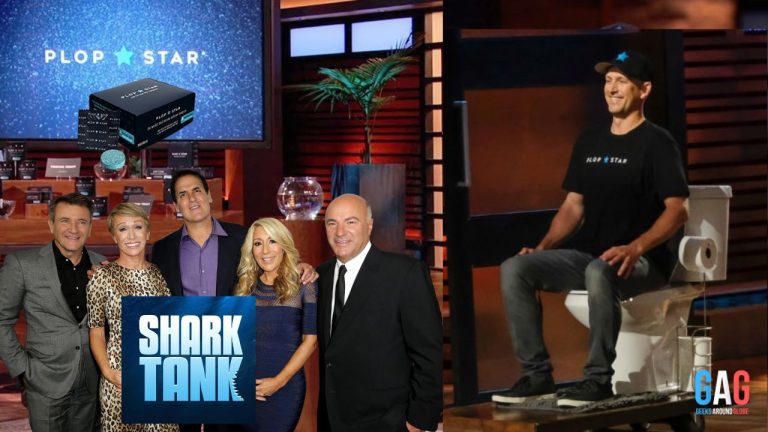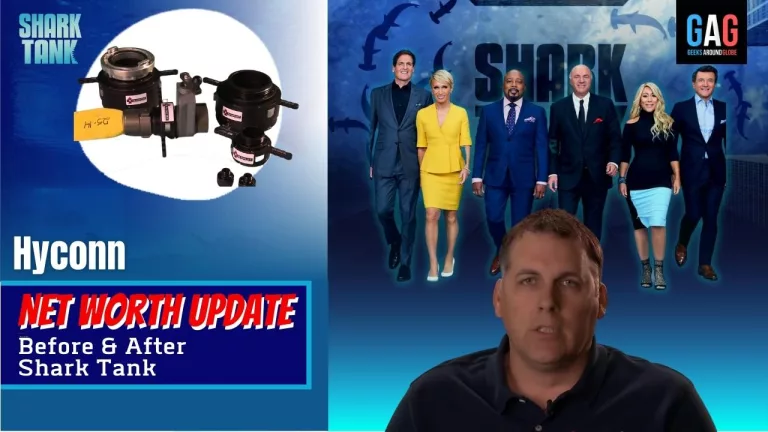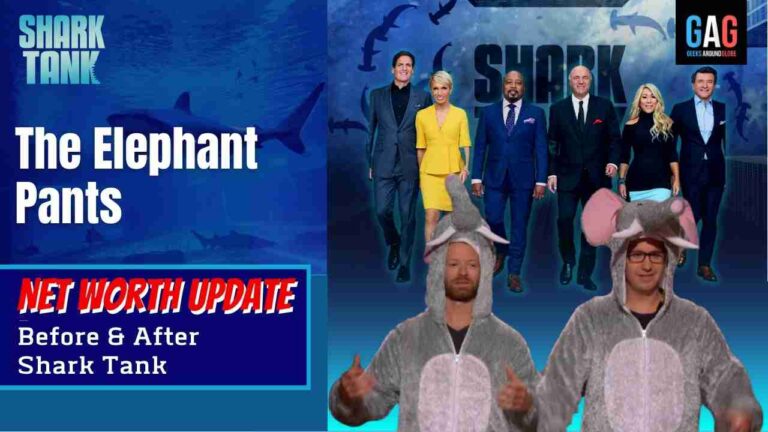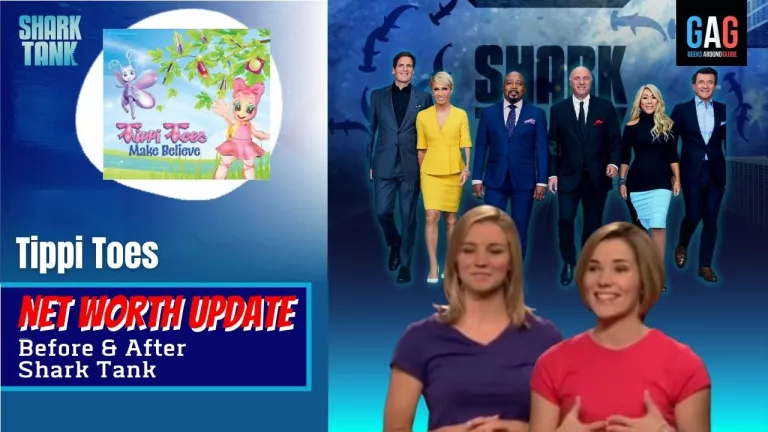Have you ever heard You Smell Soap, owned by Megan Cummins, that was featured on Shark Tank season 3? You Smell Soap was Megan’s college project. After creating 1200 soap bars for the market test, she knew that You Smell was going to be hit. To make her idea real, she entered the shark tank in 2011, seeking 55,000 for 20% of her company. She was nervous at the pitch but received 3 deals from 3 sharks. Among 3 deals, she chose Robert Herjavec instead of Mark Cuban or Barbara Corcoran. She left the show happy because she had a shark on her side.
After the very next day, she called Robert to discuss the business. Guess what happened? He didn’t answer. This happened for like six months, and for all those six months, she wasn’t able to contact Robert. But suddenly, out of nowhere, after months, Robert contacted her and suggested a new deal. It was 55,000 for 50% of the company. Megan didn’t like the idea and guess what? The deal between Robert and Megan from Shark Tank never closed.
This is only just one, and there is a bunch of incidents. This led us to investigate how many shark tank deals fell apart when cameras were not rolling. As a surprise, more than 50% of Shark Tank deals are never closed. And 73% of deals are changed or never closed after the shark tank. So this information led to the question of why this is happening. In this article, we are going to investigate why deals fall through and who is responsible for that.
Why are 50% of the shark tank deals not getting close?
Nearly 60% of products shake hands with sharks. But only 40 – 50% of them finalize at the end. Have you ever thought why? As an answer, there are not one but a few reasons.
- Just because sharks give a deal in shark tank does not mean they are going to stick with it forever
During the Post-show, either the Sharks or the entrepreneurs might discover aspects that make the deal less appealing than it seemed on Show. Sometimes, The Sharks might propose a changed deal to protect their investment, which might be a larger portion of the company. That is the thing that happens on You smell Soap.
- Entrepreneurs come to Shark Tank not just for money.
Not all entrepreneurs step onto the Shark Tank stage with the primary goal of securing a financial backer.
- Some products are not legit
Sometimes Sharks don’t want to close the deal
It’s a bit of a shocker, but yes, even after a Shark fights to secure a deal on the show, they might decide not to go through with it. You might wonder, “Why would a Shark back out after making a deal on national TV?” Let’s break it down.
First off, not all companies that pitch on Shark Tank are as solid as they seem. During the pitch, entrepreneurs put their best foot forward, highlighting the strengths of their businesses. However, after the handshake and the cameras stop rolling, the due diligence phase begins. This is when the Sharks take a closer look at the company’s financials, background, and operations.
As an example, the journey of Show No Towels was able to secure a deal with Shark Lori. Even Lori herself wrote a check for Shelly. But soon after the relationship between Shelly Ehler and Lori Greiner turned sour when Greiner attempted to change the terms of their deal. Shelly has shared with Failory that Lori wanted to increase her stake in the company significantly.

Sometimes, Shark might back out, including discovering issues with the company’s financial health, legal problems, or operational inefficiencies that weren’t apparent during the pitch. For the Sharks, investing in a company is not just about the numbers. It’s also about trust and the potential for a long-term partnership. If something about the company’s background raises red flags, a Shark may deem the investment too risky.
You know you could have a year with 20%, you could have a year with 30%, you could have a year with 40%, it’s really varied, it’s not because of us, people have reported that it’s sharks, its no, it’s not us, but the people that watch its 15 years, they are savvy and they may come in to get a commercial, and if they do they are not gonna close. So the one thing that’s missing and what’s been reported in the past is how many of the deals don’t close because the entrepreneur doesn’t close. Something to think about. right
Lori Greiner
Some entrepreneurs don’t want money
You read that correctly. Not every entrepreneur who comes to the Shark Tank is looking for the money. So, if it’s not just about securing an investment, what is it? It’s called the Shark Tank Effect. It is the commercial value of the show.
Imagine you have to spend more than $150,000 for just one commercial of your new product. Or instead, you can just go shark tank and pitch. You don’t even have to accept the deal.
If you remember Copa di Vino, that’s what that company did. Copa Di Vino is a wine company that sells prepackaged wine in individual glasses. The company was founded by James Martin, who appeared on Shark Tank in both 2011 and 2012. Despite being offered deals on both times, he declined them. Do you know what happened? After five months, they had $500,000 in sales.
The Shark Tank Effect
Appearing on the show Shark Tank can have a significant impact on a company’s visibility, credibility, and sales. This is known as the “Shark Tank Effect”. It goes beyond just the financial backing that the Sharks might offer. The mere exposure to millions of viewers nationwide acts as a powerful catalyst for growth.
Take, for instance, Legacy Shave, a company that sold over 2,500 units of their innovative shaving tool shortly after their episode aired. Similarly, Hello Prenup, a company that offers prenuptial agreement services, saw a staggering 545% increase in traffic to their website following their Shark Tank debut.

The real benefit of the “Shark Tank” lies in its ability to open doors and create opportunities for entrepreneurs. The increased visibility garnered from the show can lead to partnerships, collaborations, and expansion into new markets, ultimately driving growth and success for the featured companies.
Not all products that appear in Shark Tank are legit
Not all products that appear in Shark Tank are legit. Let’s explain this with a Breathometer. Do you remember the Breathometer? A breathometer was claimed to measure blood alcohol levels accurately. And not to surprise, the product caught the attention of all five Sharks. The pitch ended up with all five sharks investing $1 million for a 30% stake in the company. However, things quickly soured when it became evident that the product didn’t live up to its promises.
The device failed to deliver accurate readings. It posed a serious risk to users’ safety. The Federal Trade Commission intervened, demanding Breathometer to issue refunds and cease selling their product. Mark Cuban once said that it is the “worst execution in the history of Shark Tank.”
Not all products showcased on Shark Tank turn out to be legitimate or successful. Despite the initial hype and investor interest, some ventures fall short due to fundamental flaws in their products or business models.
Numbers Behind the Shark Tank Deals
According to online sources Out of 112 businesses offered deals on seasons 8 through 13 of Shark Tank, roughly 50-57% of those deals never came to fruition. Another 15% ended up with changed terms after the cameras stopped rolling.
Out of 1140 products that appeared in shark tanks, 59.85% were able to secure any deal from sharks. But as a surprise, 60% of products that survived as of 2023 were products that did not receive any shark tank deal. Out of 729 shark tank deals, the success rate of shark tank deals is 30%(products that can survive as of 2023).
Here are some other interesting facts we found
- Roughly 53% of products from the first ten seasons have managed to survive as of 2023.
- However, for seasons 11 to 14, this survival rate jumps to 73%.
- Out of the 1,140 from Shark Tank products, only 718 have endured till 2023
Let’s sum this up
Entrepreneurs’ journey on Shark Tank is not always smooth sailing. Shark Tank is the show that offers a platform for new businesses to secure investments. But not every deal reaches fruition. The statistics reveal a 73% of deals fall through or undergo changes after the cameras stop rolling.
Despite setbacks, the “Shark Tank Effect” remains a powerful force, driving visibility, credibility, and sales for companies. However, it’s essential to recognize that success on Shark Tank doesn’t solely hinge on securing a deal with the Sharks. Entrepreneurs must navigate challenges, adapt to changing circumstances, and ultimately deliver value to their customers.


